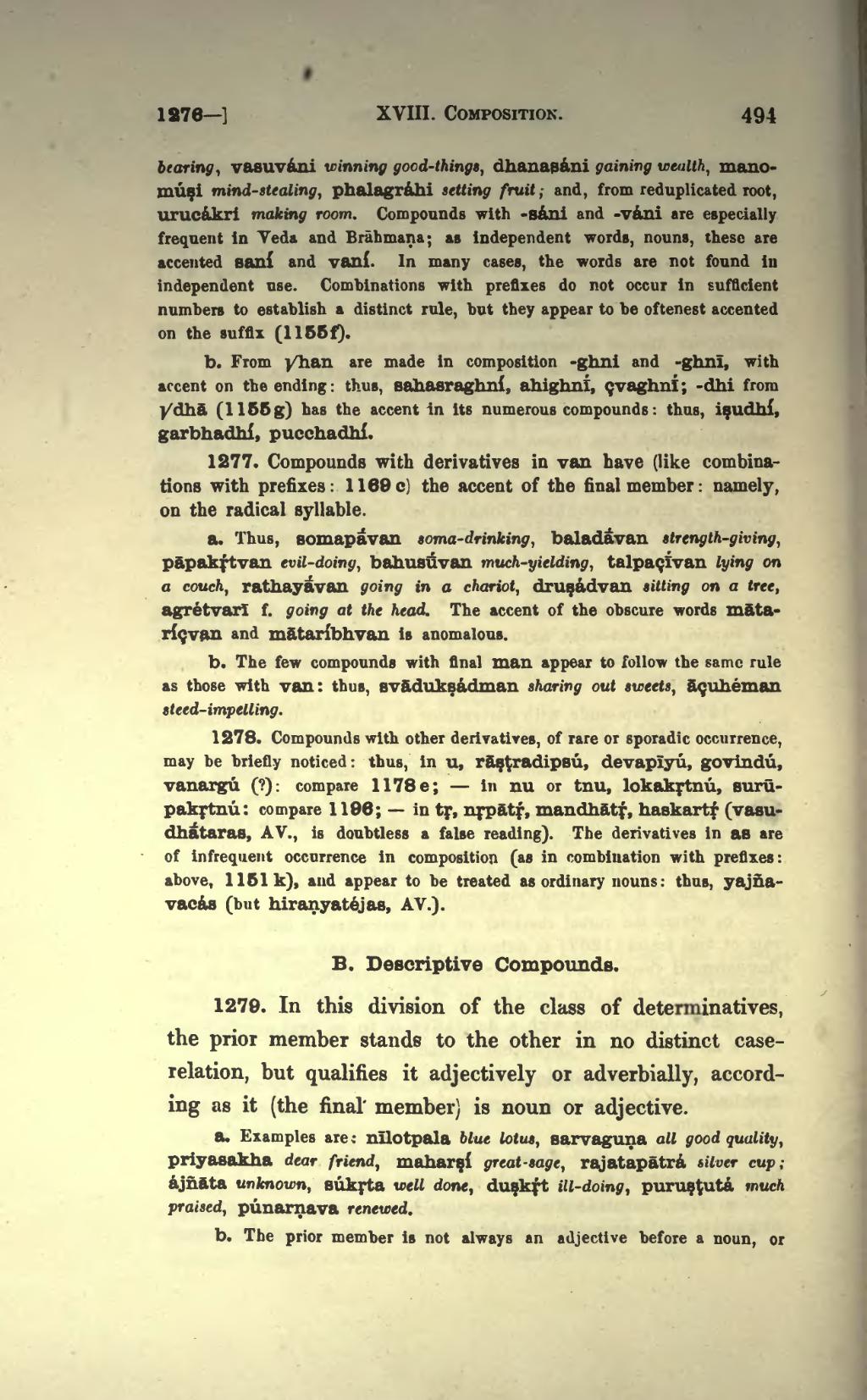bearing, vasuváni winning good-things, dhanasáni gaining wealth, manomúṣi mind-stealing, phalagráhi setting fruit; and, from reduplicated root, urucákri making room. Compounds with -sáni and -váni are especially frequent in Veda and Brāhmaṇa; as independent words, nouns, these are accented saní and vaní. In many cases, the words are not found in independent use. Combinations with prefixes do not occur in sufficient numbers to establish a distinct rule, but they appear to be oftenest accented on the suffix (1155 f).
b. From √han are made in composition -ghni and -ghnī, with accent on the ending: thus, sahasraghní, ahighnī́, çvaghnī́; -dhi from √dhā, (1155 g) has the accent in its numerous compounds: thus, iṣudhí, garbhadhí, pucchadhí.
1277. Compounds with derivatives in van have (like combinations with prefixes: 1169 c) the accent of the final member: namely, on the radical syllable.
a. Thus, somapā́van soma-drinking, baladā́van strength-giving, pāpakṛ́tvan evil-doing, bahusū́van much-yielding, talpaçī́van lying on a couch, rathayā́van going in a chariot, druṣádvan sitting on a tree, agrétvarī f. going at the head. The accent of the obscure words mātaríçvan and mātaríbhvan is anomalous.
b. The few compounds with final man appear to follow the same rule as those with van: thus, svādukṣádman sharing out sweets, āçuhéman steed-impelling.
1278. Compounds with other derivatives, of rare or sporadic occurrence, may be briefly noticed: thus, in u, rāṣṭradipsú, devapīyú, govindú, vanargú (?): compare 1178 e; — in nu or tnu, lokakṛtnú, surūpakṛtnú: compare 1196; — in tṛ, nṛpātṛ́, mandhātṛ́, haskartṛ́ (vasudhā́taras, AV., is doubtless a false reading). The derivatives in as are of infrequent occurrence in composition (as in combination with prefixes: above, 1151 k), and appear to be treated as ordinary nouns: thus, yajñavacás (but hiraṇyatéjas, AV.).
B. Descriptive Compounds.
1279. In this division of the class of determinatives, the prior member stands to the other in no distinct case-relation, but qualifies it adjectively or adverbially, according as it (the final member) is noun or adjective.
a. Examples are: nīlotpala blue lotus, sarvaguṇa all good quality, priyasakha dear friend, maharṣí great-sage, rajatapātrá silver cup; ájñāta unknown, súkṛta well done, duṣkṛ́t ill-doing, puruṣṭutá much praised, púnarṇava renewed.
b. The prior member is not always an adjective before a noun, or
